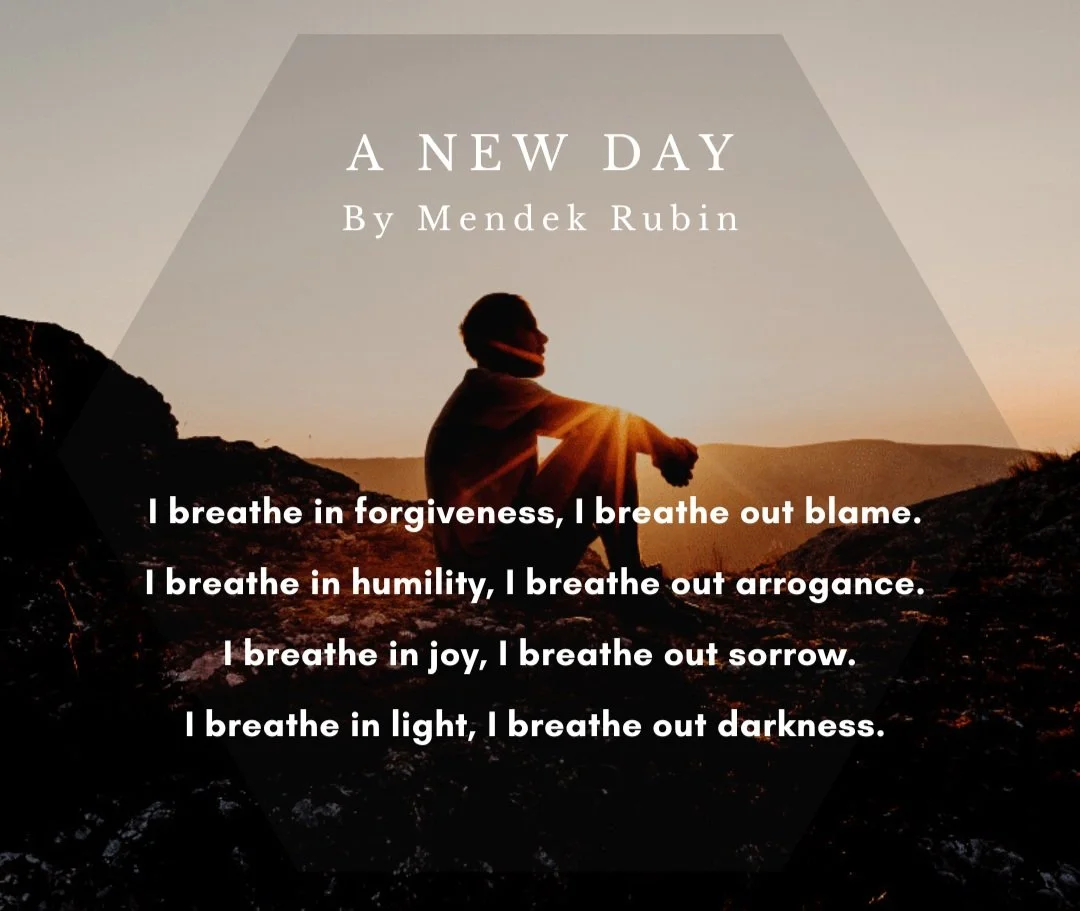Finding Freedom Through Forgiveness
Forgiving people who have caused us pain is challenging. When I’m not offered an effusive apology, forgiving rarely comes easily for me. My emotional underbelly is very tender, and old wounds tend to keep their sting. That’s why I’ve recently turned to my father’s teachings about the power of forgiveness.
Cultivating the ability to forgive was a huge part of Mendek’s healing journey. As a Holocaust survivor who experienced unimaginable violence and abuse, forgiveness was about emotional liberation. “Holding on to blame and fury for so many decades created a darkness within me that was physically and spiritually depleting. I had to find a way to come to terms with my past so I could let it go,” he wrote. “As long as I remained imprisoned by hatred, I would never be able to fulfill my own destiny.”
For my father, forgiveness was an act of self-love and self-respect—the choice to put his loyalty to himself above his loyalty to his suffering. It was about making the deliberate decision to release feelings of vengeance toward his perpetrators, rather than about absolving them. This shift was an essential part of how he was able to drop his identification with being a victim and reclaim his sovereignty.
Discovering that he couldn’t truly forgive others until he learned to forgive himself, my father began a practice every time he made a mistake: rather than automatically reverting to self-criticism, he would soothe himself by saying, “It’s all okay. I love you no matter what.” This repeated self-forgiveness affirmation supported his realization that only unconditional love could heal him. “The rotten sweetness of revenge could never console me. My anger was useless in this regard.”
Renowned Buddhist teacher, Jack Kornfield (who happens to be my exceptionally wise cousin), explains that forgiveness does not mean condoning harmful actions or lessening our commitment to preventing further harm. Rather, forgiveness is about releasing the burden of the pain, resentment and outrage we’ve been carrying. “Without forgiveness,” he wrote, “We are chained to the past. Individually we remain caught in the hurt and pain of our history. Collectively, humanity needs to learn forgiveness, to end the cycles of retribution and violence, and start anew.”
Jack offers a forgiveness meditation that I find particularly useful because it expands my perspective and reduces feelings of self-righteousness. Instead of focusing solely on forgiving others, Jack’s meditation begins by having us ponder the ways we may have knowingly or unknowingly caused others to suffer. Next, Jack has us contemplate the ways we may have hurt or abandoned ourselves. Finally, we think about the people who have hurt or harmed us, “knowingly or unknowingly, through thought, words or deeds,” and say to ourselves, “I have carried this pain in my heart too long. To the extent that I am ready, I offer them forgiveness. To those who have caused me harm, I offer my forgiveness. I forgive you.”
Jack also explains that we must summon forgiveness toward ourselves when we’re not ready to let go. “Forgiveness cannot be forced; it cannot be artificial. Simply continue the practice and let the words and images work gradually in their own way.”
With my personal history of emotional repression, I need to be careful not to use forgiveness as a way to bypass my pain or rush past my sorrow. It’s only when I’m willing to stay present with emotional discomfort and let go of my need for validation, that lessons about my old wounds and entrenched patterns begin to reveal themselves.
Still, there’s an important difference between honoring emotions as they arise and stoking outrage by spinning stories and dredging up past indignities. A comprehensive Mayo Clinic article focuses on how letting go of grudges and bitterness supports our physical and emotional wellbeing. In addition to improved relationships and more peace of mind, forgiveness also lowers blood pressure and symptoms of depression and anxiety, while improving heart health and immune system functioning. Reminiscent of my father’s insights, the article explains how moving away from our role as victim releases the control and power the offending people and situations have had in our lives. “As you let go of grudges, you'll no longer define your life by how you’ve been hurt. You might even find compassion and understanding.”
Finally, forgiving does not mean forgetting. Nor does it require us to excuse the harm that was done or make up with the people who caused it. For my father, forgiveness was about moving on—releasing the darkness of his past so he could more fully enjoy his life in present time and create a brighter future. “I forgive because it’s what I’ve decided I want to do. I don’t do it for someone else. I do it for me. It’s not that I deny the past. I just don’t live in it.”



